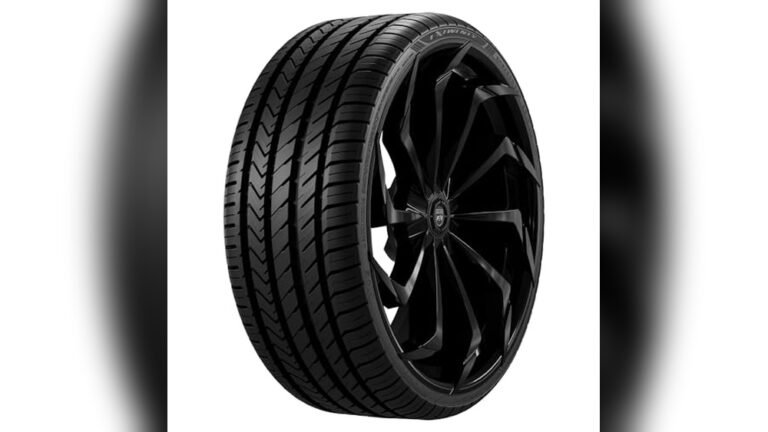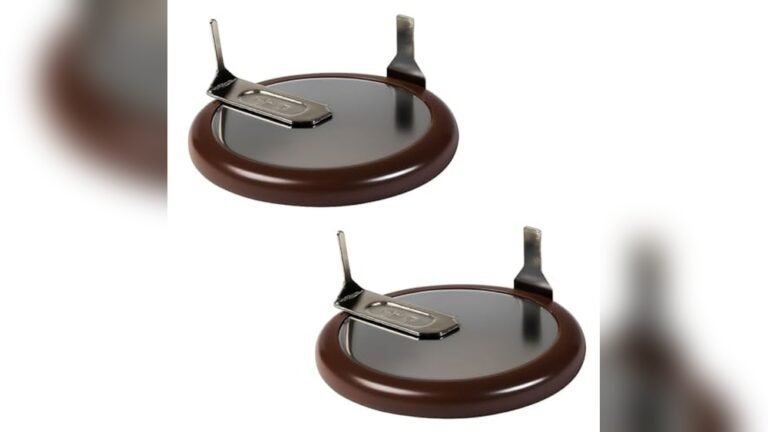When you start your BMW and experience shaking, it is likely caused by engine misfires or worn-out spark plugs. Experiencing shaking when you start your BMW can be worrisome, especially if it’s a regular occurrence.
Your car should provide a smooth and comfortable ride, so any sign of shaking can indicate an underlying issue. One common reason for this problem is engine misfires, where the fuel in the cylinders ignites irregularly. This disrupts the engine’s smooth operation and leads to vibrations.
Another possible cause is worn-out spark plugs, which can affect the combustion process, resulting in shaking upon ignition. In the following sections, we will explore these potential causes in more detail, helping you understand why your BMW shakes when you start it and what steps you can take to address the issue.
Possible Reasons For Shaking
Is your BMW shaking when you start it? There could be several reasons behind this issue. One common culprit is engine misfires. When your engine misfires, it means that the fuel in the cylinder is not being ignited properly. This can result in a shaky start and even affect the overall performance of your BMW. Faulty spark plugs are another potential cause of shaking. Spark plugs play a crucial role in igniting the air-fuel mixture inside the engine. If they are worn out or damaged, they may not be able to create a strong spark, leading to a rough start. Additionally, ailing ignition coils can also contribute to the shaking. Ignition coils are responsible for generating the high voltage necessary to ignite the fuel mixture. If they are malfunctioning, it can lead to engine misfires and shaking. Finally, dirt and debris in the engine can disrupt the combustion process and cause shaking. It is essential to regularly maintain and clean your BMW’s engine to prevent such issues.
Diagnosing The Underlying Issue
If your BMW shakes when you start it, it could indicate an underlying issue that needs to be addressed. One important tool in diagnosing the problem is an OBD-II scanner. By connecting this scanner to your car’s OBD-II port, you can retrieve valuable information about the engine performance and identify any potential faults or malfunctions. This scanner is a must-have for any car owner as it provides real-time data and helps in pinpointing the exact cause of the shaking.
An OBD-II scanner is crucial for diagnosing BMW shaking on startup. It allows you to access the car’s onboard computer and retrieve error codes and other data to help you understand the root cause of the issue. With this information, you can determine whether the problem is related to engine misfires, fuel system malfunctions, or any other faulty component. Additionally, the scanner provides live data readings, enabling you to monitor important parameters such as engine revs, coolant temperature, and oxygen sensor readings. By consulting the BMW service manual and performing a visual inspection, you can gather additional clues to aid in the diagnosis and understand the next steps to take for resolving the shaking issue.
Engine And Component Causes
When starting your BMW and noticing a shaking sensation, it could be attributed to various engine and component causes. One possible culprit might be motor mount concerns, which are the parts responsible for securing the engine and transmission to the chassis. Over time, these mounts can wear out, leading to vibrations when the engine is running.
Another factor to consider is the condition of the belts and pulleys. Belts that are worn or damaged can cause imbalances in the engine, resulting in shaking during startup. Similarly, faulty or worn pulleys can create vibrations as well.
Lastly, it is essential to check the exhaust system for any issues. A malfunctioning or damaged exhaust can disrupt the smooth operation of the engine, causing it to shake when starting.
In summary, addressing motor mount concerns, inspecting belts and pulleys for wear, and verifying the health of the exhaust system are crucial steps in diagnosing the reasons behind your BMW shaking upon startup.
External Factors Impacting Startup
External factors can have a significant impact on the startup of your BMW, causing it to shake when you start it. Cold weather is a common challenge that affects many vehicles, including BMWs. Extreme temperatures can cause motor oil to become thicker, leading to increased resistance and a rough start for your engine.
In addition, the fuel quality you use can also play a role in the shaking of your BMW at startup. Poor-quality fuel or contaminated fuel can result in inconsistent combustion, leading to engine misfires and vibrations. It is important to use high-quality fuel from reputable sources to ensure smooth startup.
Furthermore, other external factors such as humidity levels, altitude, and even the angle at which your vehicle is parked can contribute to the shaking when starting your BMW. These factors can affect the air-fuel mixture, ignition timing, and overall engine performance.
By understanding and addressing these external factors, you can minimize the shaking and ensure a smoother startup for your BMW. Regular maintenance, including using quality fuel and keeping your vehicle in optimal conditions, will help to prevent startup issues and maintain the performance of your BMW.
The Role Of Regular Maintenance
Regular maintenance plays a vital role in keeping your BMW running smoothly. It helps identify and address potential issues before they develop into major problems. One common concern some BMW owners face is a shaking sensation when starting their vehicle. This shaking can be attributed to various factors, including the need for essential pre-startup checks.
Before starting your BMW, it is essential to perform a few checks to ensure everything is in order. Inspect the battery for any corrosion or loose connections. Check the oil level and condition, as low oil or dirty oil can affect engine performance. Verify that all fluid levels, including coolant and brake fluid, are within the recommended range. Additionally, examine the tires for any signs of wear and ensure they are properly inflated.
Skipping scheduled services can also impact the smooth startup of your BMW. These services include routine inspections, fluid changes, and component replacements. Neglecting these services can lead to a variety of issues, including engine misfires and vibrations.
Maintaining a regular maintenance schedule, performing essential pre-startup checks, and adhering to scheduled services will help prevent your BMW from shaking when starting. By prioritizing maintenance and addressing any issues promptly, you can ensure a smoother driving experience.
Immediate Action Steps
One possible reason why your BMW shakes when you start it is due to worn-out spark plugs. Spark plugs are responsible for igniting the fuel in the combustion chamber, and if they are not functioning properly, it can cause engine misfires and vibrations. Immediate action steps include checking the condition of your spark plugs and replacing them if necessary. Air intake leaks can also contribute to engine shaking. Inspect the intake manifold and air hoses for any signs of cracks or leaks, as this can affect the mixture of air and fuel going into the engine. Addressing these issues promptly can help alleviate the shaking and ensure smooth and efficient engine performance.
Professional Vs. Diy Repairs
Ignoring the warning signs of a shaking BMW can lead to serious issues down the line. It’s important to understand the risks that come with ignoring vibration warnings and why it’s crucial to prioritize professional repairs over DIY solutions. Certified BMW diagnosis ensures that the root cause of the problem is accurately identified, allowing for more targeted and effective repairs. This not only saves time but also mitigates the risk of further damage or expensive repairs in the future. Additionally, certified technicians have access to specialized tools and knowledge that enable them to perform comprehensive inspections and repairs. By prioritizing professional repairs, BMW owners can enjoy a smoother and safer driving experience, while also protecting the value of their vehicle.
Long Term Bmw Care Strategies
When it comes to the long-term care of your BMW, investing in quality parts and adhering to recommended service intervals are crucial. Quality parts ensure optimal performance and longevity, reducing the likelihood of issues such as shaking when starting your car. OEM (Original Equipment Manufacturer) parts are designed specifically for your BMW, ensuring a perfect fit and compatibility.
In addition to using quality parts, following the recommended service intervals specified by BMW is essential. Regular maintenance includes oil changes, filter replacements, and inspections, which help identify and address potential problems before they escalate.
By investing in quality parts and adhering to service intervals, you can keep your BMW running smoothly and minimize the chances of experiencing shaking or other issues. Regular maintenance not only improves performance but also helps maintain the value and reliability of your BMW over time.

Credit: www.repairsmith.com
Frequently Asked Questions For Why Does My Bmw Shake When I Start It
Why Does My Bmw Shake When I Start It?
Your BMW may shake when you start it due to a few reasons. One possibility is that the engine mounts are worn out, causing vibrations. Another reason could be a misfiring engine, which can cause the whole car to shake.
Additionally, issues with the fuel system or ignition system can also result in shaking at startup. It’s best to have your BMW inspected by a professional to diagnose and resolve the issue.
How Can I Fix The Shaking Issue In My Bmw?
To fix the shaking issue in your BMW, start by having it inspected by a qualified mechanic. They can identify the underlying cause of the shaking and recommend the necessary repairs. Common fixes may include replacing worn-out engine mounts, fixing misfiring cylinders, or resolving issues with the fuel or ignition system.
It’s essential to address the root cause to ensure a smooth and safe driving experience.
Are There Any Diy Solutions To Fix The Shaking Problem?
While there may be some DIY solutions to minor shaking issues, it’s recommended to consult a professional for an accurate diagnosis and proper repairs. Attempting to fix complex problems without the necessary knowledge and tools can lead to further damage.
It’s best to leave major repairs to experienced technicians who have the expertise to solve the issue correctly and ensure the safety of your BMW.
Conclusion
To conclude, if your BMW shakes when you start it, it could be due to several reasons. It is important to address this issue promptly to avoid any further damage to your vehicle. Check for possible causes such as worn-out engine mounts, ignition system problems, or misfiring cylinders.
Consulting a professional mechanic will help diagnose and resolve the shaking issue, ensuring smooth and safe driving experiences in the future.







